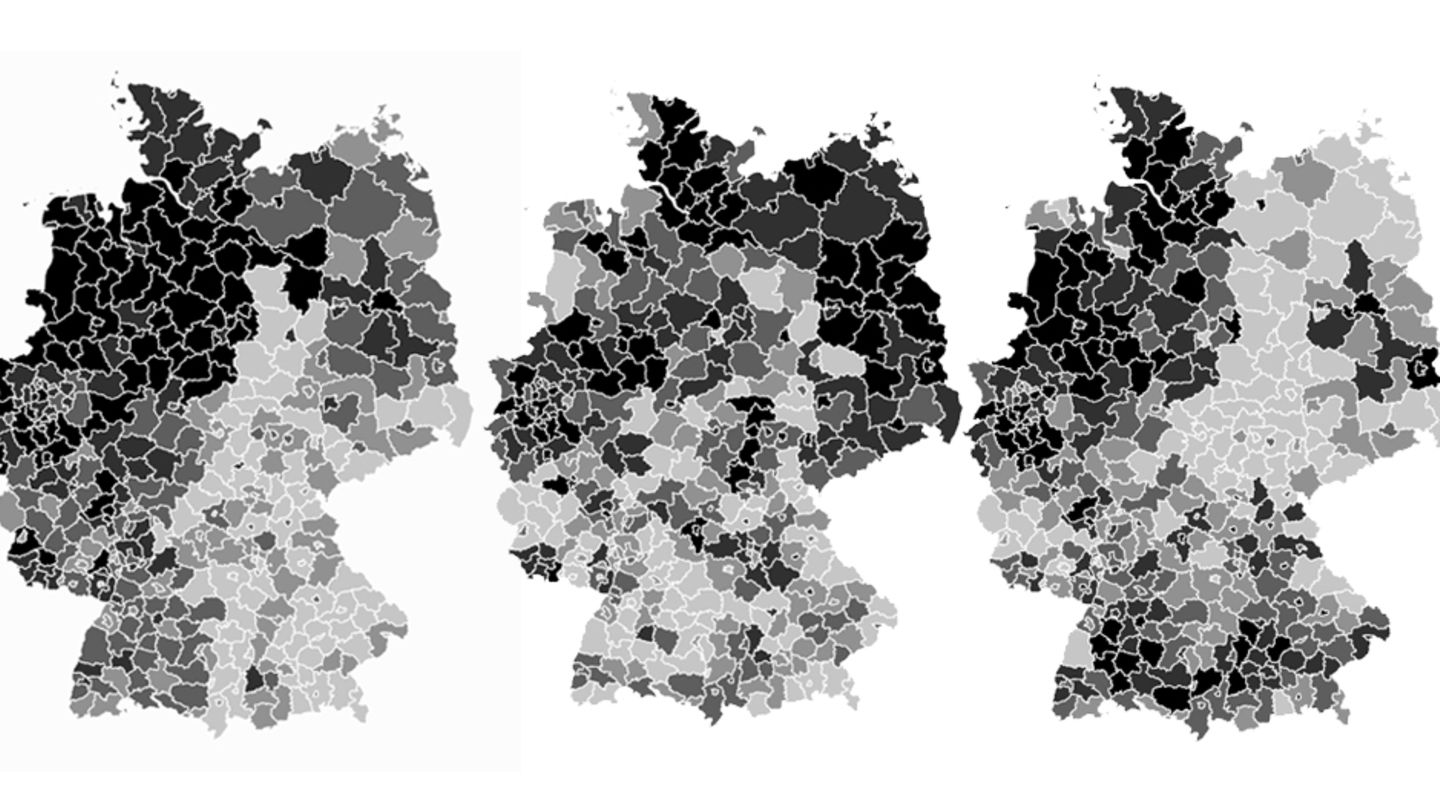Shortly before the general election, many people find out more about the individual parties on the Internet. How the interest is distributed in the country and what questions people type in on Google.
Which party is searched for where in Germany? What do people want to know about the parties? To answer these questions, Google asked the stern With a view to the parties represented in the Bundestag, data on search traffic at district level is available for the time window between August 19 and September 2, 2021 – and also the ten questions about each party that were most frequently entered on Google in Germany during the period .
The data show that the distribution of search interest among the individual parties in Germany sometimes varies greatly. But some things are also the same: For example, the search interest in and around Berlin is high in all parties. With regard to the questions asked, it can be seen that the users dealt with the attitudes, goals and history of the parties across the board. For each party, however, there are also individual questions, for example about the Greens’ ban plans or the importance of the five percent hurdle at the CSU.
CDU
The interest in the CDU with regard to the search volume in the period in question was greatest in the northwest – in the federal states of North Rhine-Westphalia and Lower Saxony as well as in Schleswig-Holstein. On the left in the graphic the circles with the highest search traffic.
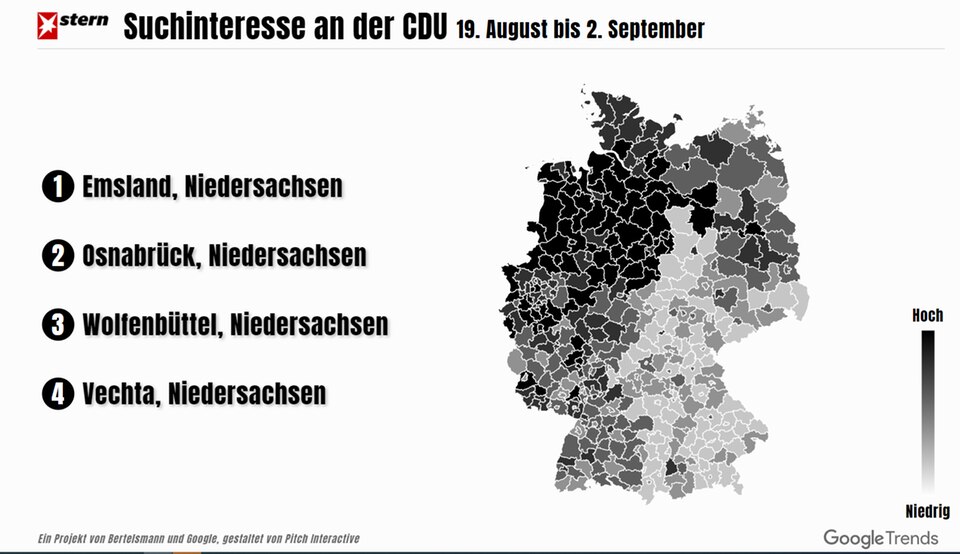
The most frequently asked search queries revolve around the goals and stance of the CDU, and many were also interested in how long the party has been in power and since when it has existed. The top ten:
- What does CDU
- What does the CDU stand for
- What is the CDU doing
- Was will die CDU
- How many members does the CDU have?
- When was the CDU founded?
- What does the CDU promise
- What is the goal of the CDU
- Why choose CDU
- Who will vote for the CDU
- How long has the CDU ruled
- What color is the CDU
CSU
With the Bavarian sister party of the CDU, the CSU, the search interest was not surprisingly highest in the Free State. But also in other parts of the Federal Republic of Germany, those looking for answers on Google are interested in the CSU, for example in Schleswig-Holstein:
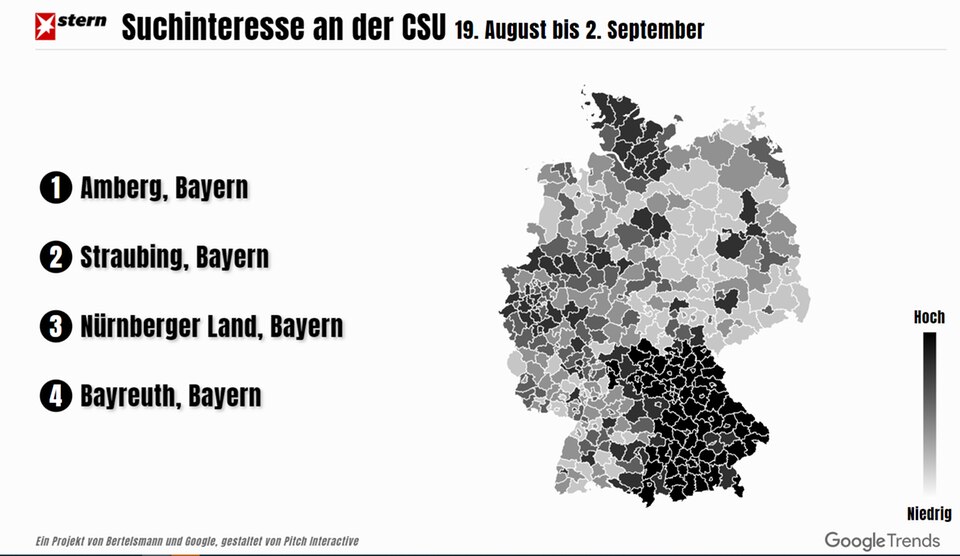
They asked, for example, why the CDU even exists and why it only operates in Bavaria. The names of the CSU politicians were also of interest, as was the question of what happens if the party lands below the five percent mark in the election. The top ten:
- What does CSU mean
- What does CSU stand for
- What percentage does the CSU need in the federal election?
- How many members does the CSU have?
- What happens if the CSU comes under 5
- When was the CSU founded?
- What is the CDU / CSU campaigning for?
- Why is there the CSU
- Why CSU only in Bavaria
- What does CSU mean?
- When was the CDU / CSU founded?
- What are the names of the CSU politicians
SPD
The search interest in the SPD was also more pronounced in the north-west, and there was also a selective search for the Social Democrats in Bavaria.
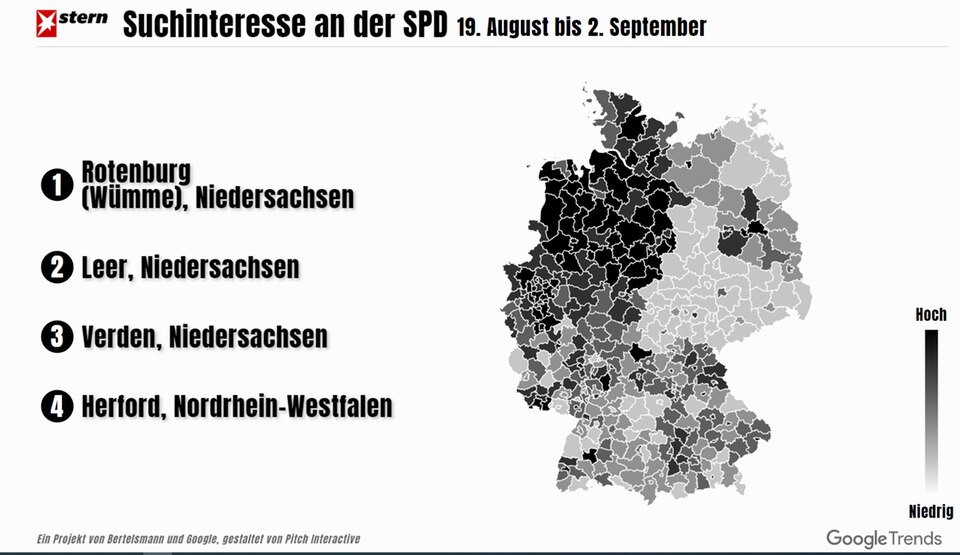
The search queries about the SPD also revolve around attitude and goals. The users were also interested in who is running for the party and what might speak against a cross in the SPD. The top ten:
- What does the SPD stand for
- Was will die SPD
- What does SPD mean
- What is the SPD doing
- When was the SPD founded?
- What does the SPD promise
- Why choose SPD
- What is the SPD campaigning for?
- how many members does the SPD have
- Who is running for the SPD
- Who is the SPD’s candidate for chancellor
- What speaks against the SPD
The green
The search interest in the Greens is similar to that in the SPD and CDU and is greatest in the northwest. Across the country, there seems to be an increased interest in searching for the party in a number of independent cities.
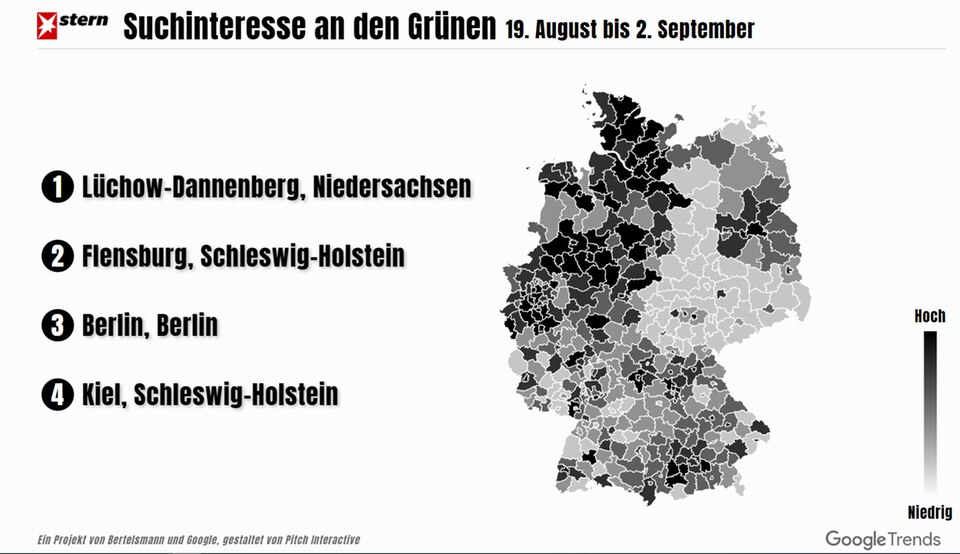
In contrast to the Union parties and the SPD, a number of users are apparently wondering what the party wants to ban. In addition, many have wondered what would happen if the Greens won the election and why the party should not be elected. The top ten:
- What do the Greens want
- What do the Greens stand for
- Who votes for the Greens
- What do the Greens want to ban?
- What if the Greens win
- Why not choose the Greens
- What are the Greens doing
- How long have the Greens existed?
- Who are the greens
- What do the Greens want to improve?
- What is the goal of the Greens
- Why choose the greens
FDP
The FDP encountered increased search interest not only in the northwest, but also in several districts of Baden-Württemberg and Bavaria – both economically strong regions. In Mecklenburg-Western Pomerania, Thuringia and Saxony-Anhalt, on the other hand, the values were rather low – with the exception of a few cities such as Schwerin and Rostock.
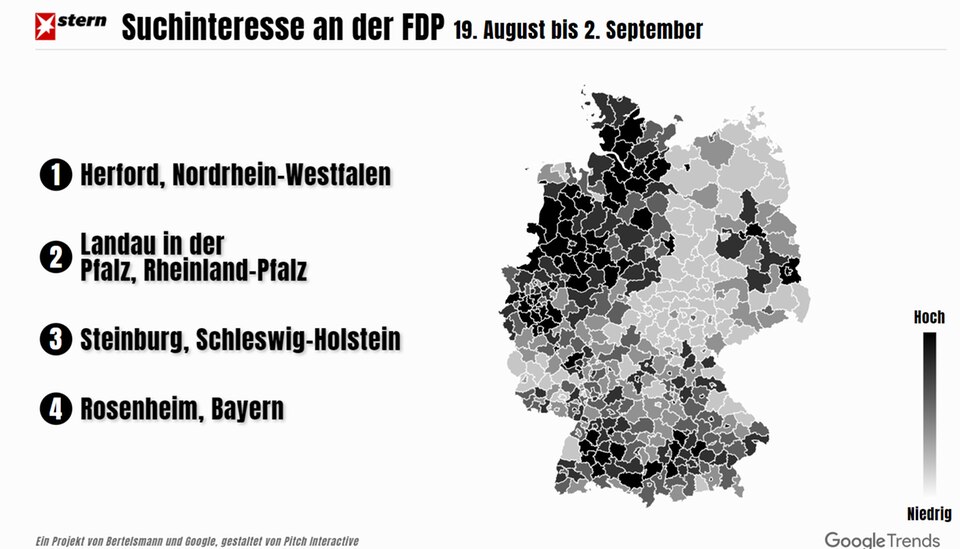
In the FDP, many have apparently asked themselves whether the party is left or right in the political spectrum and why it is not running a candidate for chancellor. The top ten:
- What does the FDP stand for
- What does FDP
- Was will die FDP
- What is the FDP doing
- Why is the FDP not making a candidate for chancellor
- Who votes for the FDP
- What is the FDP
- Is FDP right
- When was the FDP founded?
- What is the FDP advocating for?
- How many members does the FDP have?
- Is the FDP on the left
AfD
The main focus of search interest in the AfD was across the board rather in the east of the Federal Republic – in Saxony-Anhalt at the time in question, however, it was low according to the Google data. In the west, north and south, increased search interest is rather selectively distributed across individual districts and cities.
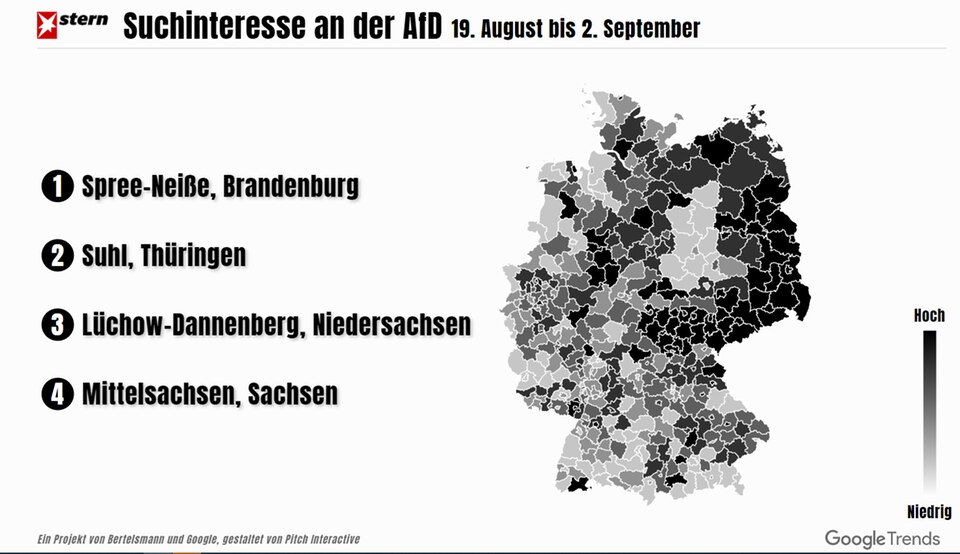
At the AfD, according to the data, a number of users asked themselves whether the party is on the right and what happens when it governs. There was also an interest in the founding date of the comparatively young party. The top ten:
- What does the AfD stand for
- What does the AfD want
- What does AfD
- What is the AfD doing
- What does the AfD want to achieve
- Is the AfD on the right
- When was the AfD founded?
- What happens when the AfD rules
- Why choose AfD
- How many members does the AfD have?
- How long has the AfD existed?
- What percentage does the AfD have
The left
The Left generated a high level of search interest across the board, especially in the north and east, and also in parts of North Rhine-Westphalia. In the south, the search interest in the party was significantly lower.
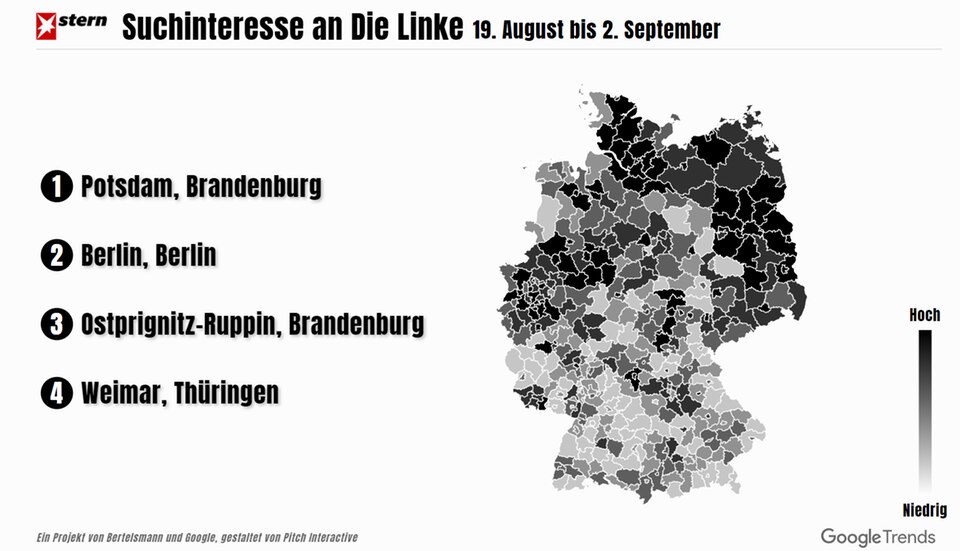
With a view to Die Linke, a number of people on Google wanted to know why they are in favor of leaving NATO and how the party feels about the Bundeswehr. The candidates were also googled. The top ten:
- What does Die Linke stand for
- What do the left want
- Who are the Left
- Why is The Left against NATO
- What kind of party is Die Linke?
- What does Die Linke
- What speaks against Die Linke
- When was Die Linke founded?
- Who founded Die Linke
- Who stands for Die Linke
- Which party is Die Linke
- What is the position of Die Linke on the Bundeswehr
Those: Google

In the video: On September 26th, the voters in Germany elect a new Bundestag. More and more people are choosing to vote by mail. Answers to the most important questions.
David William is a talented author who has made a name for himself in the world of writing. He is a professional author who writes on a wide range of topics, from general interest to opinion news. David is currently working as a writer at 24 hours worlds where he brings his unique perspective and in-depth research to his articles, making them both informative and engaging.

